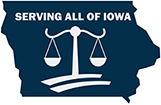- Osage Truck Accident Injury Attorneys
- Phone: 641-792-3595
- Directions
In the extensive network of highways, trucking accidents can lead to major disruptions, often resulting in life-changing injuries for those affected. In such challenging situations, trucking injury lawyers serve as unwavering supporters, offering guidance and assistance to survivors. These attorneys are experts in navigating the complex field of trucking laws and regulations.
Systems That Prove Fault In Iowa Car Accidents
Iowa follows detailed rules of the road, stated in Iowa Code Chapter 321, to determine fault in car accidents. These rules cover aspects such as yielding at intersections, responsibilities for hitting a disabled vehicle, and pedestrian right-of-way. Understanding these rules is crucial, especially in Iowa, a comparative fault state where the fault of involved drivers is compared. For instance, if one driver is speeding and another fails to yield, each driver’s fault is assessed, and damages are adjusted accordingly. If a driver is found to be 51% or more at fault, they cannot recover any damages. If the fault is 50% or less, their recoverable damages are reduced by their fault percentage. Here, we discuss common ways fault is proven in Iowa car accidents.
Common Ways to Prove Fault
1. Failure to Stop Within an Assured Distance, Failure to Maintain Control, and Following Too Closely
These violations often apply when a driver rear-ends another vehicle. Key laws include:
- Assured Clear Distance Ahead: Drivers must not exceed speeds that prevent them from stopping within the visible, clear distance ahead.
- Failure to Maintain Control: Drivers must control their vehicle and reduce speed when approaching intersections.
- Following Too Closely: Drivers should not follow another vehicle more closely than reasonable, considering traffic and road conditions.
2. Failing to Yield
Several scenarios involve failing to yield, such as at uncontrolled intersections, when merging, or backing onto highways. Specific laws include:
- Meeting and Turning Right: Vehicles must yield half the road by turning right when meeting another vehicle.
- Approaching or Entering Intersections: At intersections, the vehicle on the left must yield to the vehicle on the right if they arrive simultaneously.
- Backing Onto a Highway: Drivers must yield when reversing onto a highway.
- Slow Moving Vehicles: These must stay in the right-hand lane or as close to the right curb as possible.
- Driving on the Right Half of the Road: Vehicles must stay on the right unless passing, avoiding obstructions, or on one-way roads.
3. Failing to Obey a Traffic Control Device
Common in cases where drivers run red lights or stop signs, these laws cover specific situations:
- Green Light: Vehicles can proceed but must yield to others already in the intersection.
- Yellow Light: Vehicles should stop if safe to do so.
- Red Light: Vehicles must stop and can only turn if allowed and safe.
- Green Arrow: Vehicles can proceed in the arrow’s direction but must yield to others in the intersection.
Making a Left Turn Across Traffic
Drivers turning left must yield to oncoming vehicles that pose an immediate danger.
These examples represent a fraction of the laws determining fault in Iowa car accidents. For more detailed information, consider requesting our free Iowa Car Accident book, which outlines how to avoid common mistakes and find a qualified personal injury attorney.
Seeking Damages After an Iowa Truck Accident
Truck accidents in Iowa can result in significant medical bills and lost wages. To seek damages, you must file a truck accident claim with the responsible insurance company. Be wary of insurance adjusters who may underestimate your claim, delay investigations, or downplay injuries. If the insurer refuses fair compensation, you may need to pursue an Iowa truck accident lawsuit. Liability in these cases can involve multiple parties, such as the truck driver, trucking company, safety director, vehicle inspector, or manufacturer. An Iowa truck accident lawyer can help investigate your case and represent your interests.
Determining Liability
Liability may involve:
- The Truck Driver
- The Trucking Company
- The Safety Director
- The Vehicle Inspector
- The Truck Manufacturer
Common Types of Fatal Semi Truck Accidents
Common fatal truck accidents include:
- Underride Accidents: Smaller vehicles driving under large trucks.
- Override Accidents: Trucks driving over smaller vehicles.
- Jackknife Accidents: Trucks folding when braking suddenly.
- Head-on Collisions
- Rollovers
For assistance, contact an Iowa truck accident lawyer to help navigate these complex cases.
Contacting Walker, Billingsley & Bair
At Walker, Billingsley & Bair, our team is committed to ensuring you receive the compensation you deserve. We handle all injury cases on a contingency fee basis and manage all necessary documentation and communications.
Walker, Billingsley & Bair is prepared to act fast to defend your rights after a truck accident in Iowa. Contact our office at 641-792-3595 to speak with an attorney.

